Prominent China Expert David Lampton Speaks at CCG
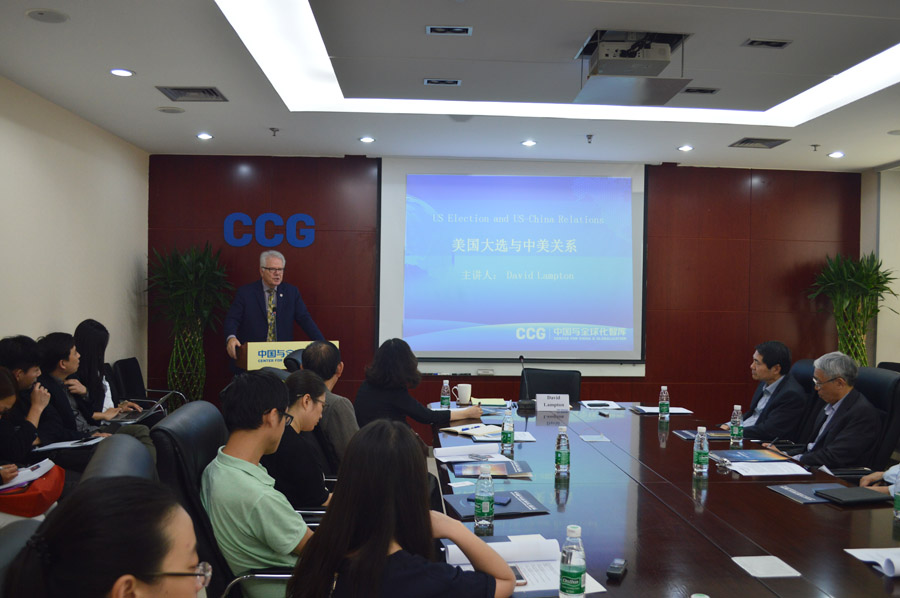
On Sept. 22, Prof. David Lampton, a prominent American China expert, was invited to CCG’s headquarters to deliver a speech about the prospect of US presidential elections and the Sino-US relations.
Prof. Lampton is currently the Director of China Studies at the Johns Hopkins Paul H. Nitze School of Advanced International Studies. He has been dedicated to China studies for decades and published a great number of academic works. Last year, he was ranked the No.1 American China Experts by an evaluation report of China’s Foreign Affairs University. Prof. Lampton is also known for his political career. He was the President of the National Committee on United States-China Relations from 1988 to 1997 and served as President Obama’s senior advisor on China affairs in 2008.
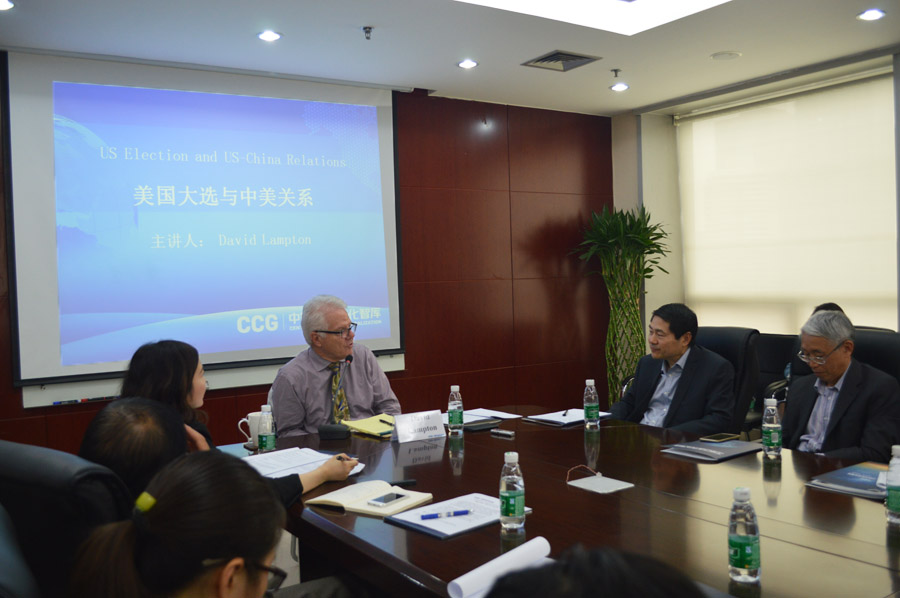
With less than 50 days left before the US Election Day, CCG believes that it is a good timing to invite such a China policy veteran to discuss the prospect of the Sino-US relations and the potential opportunities for the two countries to cooperate on global governance.

While introducing Prof. Lampton to the audience, CCG President Wang Huiyao pointed out that as globalization encounters setback and multilateralism gives away to regional cooperation, the Sino-US relations needs to strengthen to serve as the foundation of world stability. He believes Lampton can bring some enlightening perspectives to help audience better understand the dynamics of the US presidential elections and its possible impact on the bilateral relations.
Lampton said during his speech that he has witnessed the dramatic changes in China since his first visit in 1976. He applauded the great achievement of Chinese people of making such “an enormous society change so positively, so fast and to the benefit of so many people.”
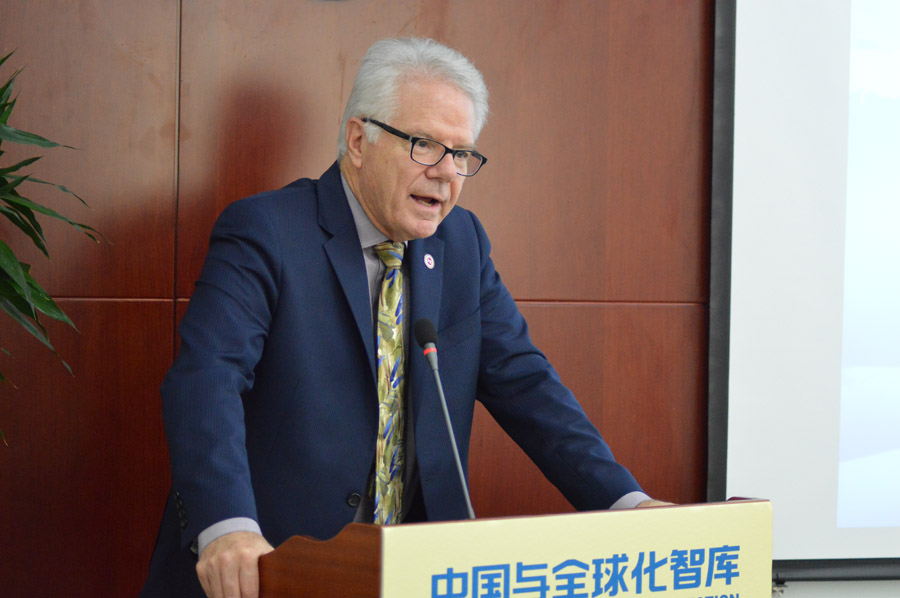
He pointed out some progress made in the Sino-US relations. For one, Premier Li Keqiang said when he met with US President Obama during the UN Assembly that China is committed to maintaining current international order and relations, which is conducive to reducing American public concern about China. Also, the bilateral investment treaty negotiation, which started in 2008, is entering the final phase that is focused on negative list. In addition, the investment of Chinese companies in the United States has grown rapidly and helped create a large number of job opportunities.
However, Lampton believes the bilateral relations are facing three major challenges. First, on the contrary to China-US economic and cultural relations that are in good shape, the bilateral security and military relations are becoming strained and likely to jeopardize the progress in other fields. Secondly, both as great powers, China and the United States may be dragged into crisis because of their due obligation for allies. Thirdly, both sides have no sufficient confidence in building a friendly and constructive bilateral relations due to the uncertainties in the future of each other’s domestic politics.
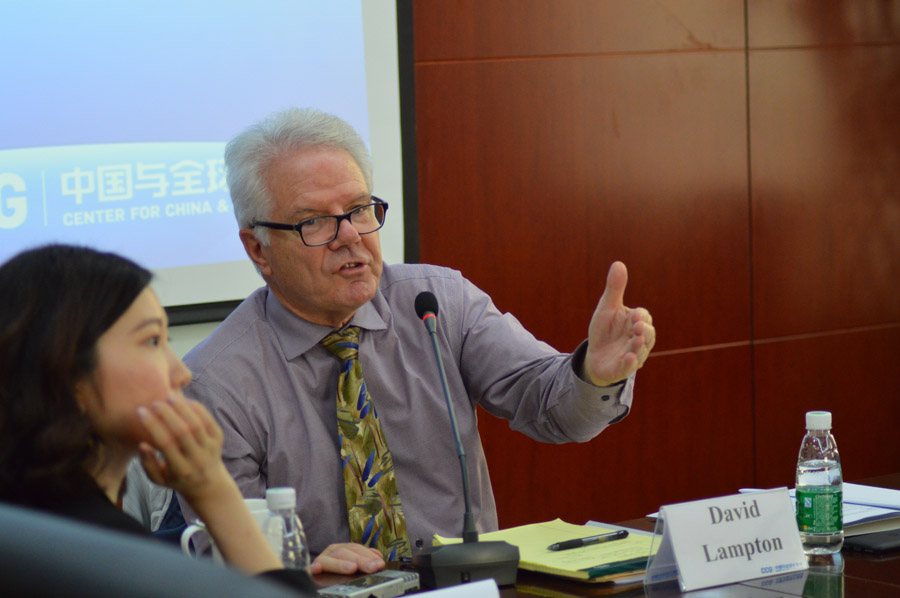
When discussing the impact of US presidential elections, Lampton noted that congressional elections that will take place at the same time can also influence the Sino-US relations. He argued that state governments care more about economic development instead of international politics and can be China’s allies, since China is the largest market for a number of US agriculture states. He suggested that China strengthen the bilateral relations on province-state level.
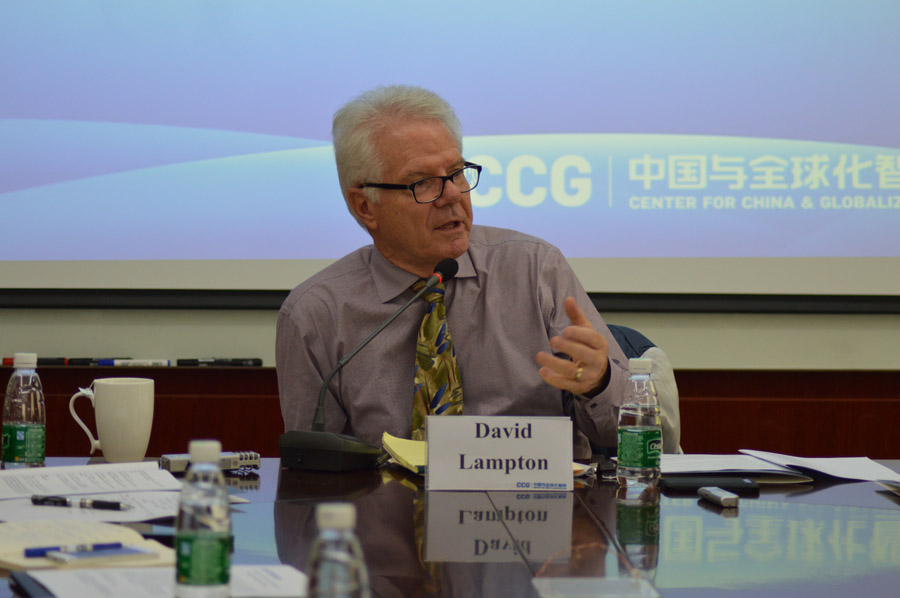
With regard to the next US president, Lampton placed his bet on Democratic candidate Hillary Clinton, believing the Electoral College system would work in her favor. In addition, Hillary has more capacity to motivate grassroots voters and, compared to Donald Trump, has more appeal to a greater variety of voter groups such as female, Latinos, African-American, higher educated, and urban residents. Nevertheless, the US policy towards China will not change dramatically no matter who comes into power.

When asked about which candidate is more likely to adopt policies in favor of China, Lampton said that compared to Hillary’s tough stance towards China in the past, Trump’s uncertain China policy might be more worrisome.
In the end, Lampton raised some recommendations on how to improve the Sino-US relations, including: 1) both sides should establish a common economic and security mechanism; 2) it is in China’s interest to improve and strengthen its relations with neighboring countries; 3) China and the United States should further strengthen people-to-people exchange; 4) more mechanisms should be set up to allow higher-level officials to exchange their ideas about strategic issues.
LocationBeijing





